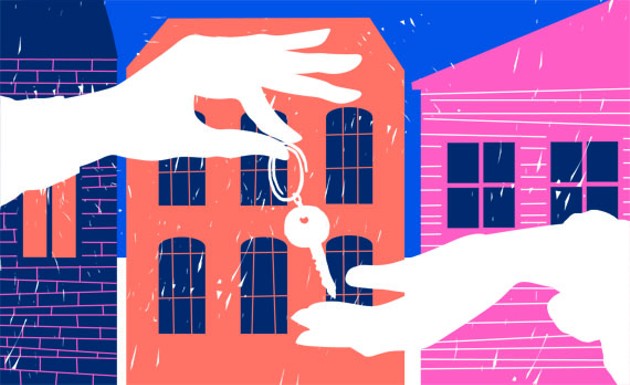The Coast: Landlord licensing: a solution to shitty landlords?
Posted September 1, 2016
Students and other low-income tenants are often at the mercy of their property owners’ whims.
Posted September 1, 2016
 [For more on Landlord Licensing, check out Nova Scotia ACORN’s Municipal Platform]
[For more on Landlord Licensing, check out Nova Scotia ACORN’s Municipal Platform]When the hot water at Brett Bell’s apartment stopped working, he called the company that managed his property. It didn’t help. Since it hadn’t received complaints from any other tenants about the water system, Bell’s claim was shrugged off.
“I was like, ‘I’ve been taking cold showers for the last couple days,’” says Bell.
This was one of multiple things that frustrated Bell while he and his roommates lived in a place on Parker Street in Halifax. The first year had mostly gone by smoothly, but during their second year at the apartment, problems kept popping up.
“Every time I called [about the water], I got the same girl in the office who was just lazy and didn’t want to do anything,” he says.
After a month of dealing with water that reached lukewarm at best, Bell finally got ahold of someone at the company willing to help. Maintenance workers came to look at the water heater and said the issue came down to calcium build-up in the pipes. They did their work and told the tenants they’d have hot water in a few hours. That didn’t work.
A week passed and Bell called the company again.
“They came back and they ripped out my bathroom wall…while I wasn’t home,” says Bell. “I came home and there was debris all over the floor and dust on everything.”
Bell says he doesn’t classify these as “horror stories,” per se, but other issues—ranging from having to push to get smoke detectors installed to a mouse infestation soon—had Bell and his roommates looking for new digs. They eventually moved to South Park Street.
“Then, I had another shit landlord,” says Bell.
Jonethan Brigley is the Dartmouth chair for Nova Scotia’s branch of ACORN (a group focused on rights for low-income residents). He feels having landlord licensing in HRM could help prevent experiences like Bell’s.
“Businesses need it. Why not landlords?” says Brigley.
Brigley compares the idea to restaurant licensing: Properties would be inspected by the city every three to four years, and things would operate on a “three-strike system” if a property isn’t up to code.
“If they don’t fix it by the third strike, not only will they be charged fees, but that unit would no longer be theirs. It’d be owned by the city until they can pay it up and fix it.”
Rent control would also be part of the plan. Brigley claims these policies would not only benefit tenants, but would help good landlords in the long run.
According to him, a few municipal officials have been receptive to the idea of landlord licensing in one form or another, but progress has been slow.
HRM spokesperson Brendan Elliot confirms there is nothing official in the works yet at city hall about the idea, but “municipal staff is looking into the whole issue of licensing” in the hope of bringing recommendations to city council.
Brigley acknowledges there are plenty of good landlords out there, but he feels the bad ones “more than likely” take advantage of students and other low-income tenants.
“That’s why I’m pushing for it—just so people have that safety,” he says of licensing.
Jon Bolduc had his own problems as a student tenant. For instance, his landlords abruptly stopped doing snow removal while they were going through a divorce. He agrees there should be more regulations in place to protect tenants at the mercy of shit landlords.
Landlords “kind of see students as a commodity,” says Bolduc. “If we weren’t students…I don’t think they would’ve had the audacity to just dodge our phone calls.”
Both Bolduc and Bell have since left Nova Scotia. These days, Bell is living in Regina. His experiences with renting here have been largely positive. But landlord licensing doesn’t exist there, either. As CBC reported in April, city officials said there were “few benefits” to putting a licensing system for rental properties in place.
Bell believes something else might be at play: The demographic of the tenants.
“A broke hipster student that goes to the University of King’s College,” for example, doesn’t have the power “an established, mid-career adult” would.
“Student tenants seem to be expendable,” says Bell.
***
Article by Rebecca Dingwell for The Coast
